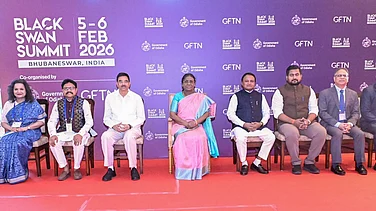Walmart-owned e-commerce major Flipkart has brought in a new policy that prevents sellers from setting the selling prices of their goods on the platform, while allowing them to just set the ‘bank settlement value’ — the amount they want to receive when a product is sold on the marketplace.
The selling price (referred to as the ‘listing price’ in e-commerce parlance that consumers see) is now determined by Flipkart after levying fees, taxes and discounts. As a result, sellers say they are finding it impossible to create a parity of selling prices across different platforms like Amazon, Swiggy Instamart, Zomato’s Blinkit and Zepto.
“This new policy has two implications. The first thing is I have an agreement with other platforms that I will offer the same price for my products everywhere. So when Flipkart unilaterally decides to give a discount, I have to bear the cost of that discount on other platforms as well,” said the seller of a beauty startup who didn’t want to be named.
“Secondly, this also gives Flipkart the power to control the selling price of two comparable products from two different sellers. If both our products have a similar bank settlement value, now the platform can decide to set a lower selling price for one of them — effectively deciding which of them will have more sales,” he added.
Furthermore, sellers said that they can change this ‘bank settlement’ value only twice in a day and within a range of 2 percent, whereas they were earlier allowed to change the selling price any number of times in a day. This limits how frequently and by how much sellers can modify their pricing, reducing their flexibility to respond to market trends, competitor pricing, or demand fluctuations.
"If I set the bank settlement price of Product A at Rs 400 and another seller does the same, our selling price should be identical. But Flipkart lists my product at Rs 480 and the other seller’s at Rs 490. This creates unfair pricing differences and affects competition," said a seller anonymously.
Interestingly, Flipkart had made a similar move last year as well when it froze sellers’ ability to change prices on the platform, but rolled it back after they raised a hue and cry.
As they did the last time, sellers are again alleging that Flipkart is influencing prices in violation of the country’s foreign direct investment (FDI) policy norms.
The FDI policy allows e-commerce platforms to operate under a marketplace model which means the platforms are not allowed to influence the price of a product. Rather, they can just act as facilitators between buyers and sellers. Sellers argue that such control over pricing allows the platform to favour certain sellers over others, disrupting fair competition.
Sellers also fear that the e-commerce platform will use the pricing power to promote private labels — their in-house brands. “The company already has all our data including customer data. Ultimately what if they only push the in house products and push all other sellers away?” a seller questioned.
Responding to Outlook Business' query on the matter, Flipkart said in a statement, "We have recently introduced some new initiatives for sellers on our platform to increase their profitability and the response has been very positive.
By enabling sellers to see the settlement price, it has provided them visibility and clarity on their earnings, which has been well received by them.
In addition, we've seen that order cancellations and returns tend to be influenced by frequent price fluctuations which reduce profitability for sellers and lower customer experience. Our efforts aim to reduce these adverse effects by setting some guardrails that positively serve the interest of both sellers and customers.
As a marketplace platform, sellers continue to set the prices of their products.”
Meanwhile, Flipkart was already under the radar of the CCI recently. In September 2024, a Reuters report noted that both Flipkart and Amazon violated the local competition law and gave preference to certain sellers. As of January 2025, the Supreme Court has transferred all the 24 cases alleging malpractices by Amazon and Flipkart which were earlier filed in various high courts across India, to the Karnataka High Court.
Experts say that if sellers are not able to change prices and their pricing is being dictated, it could be seen by the regulator as an abuse of dominant position by Flipkart.
“E-commerce players are only facilitators. They cannot dictate prices or change in prices whether on the lower or higher side. Platforms can't stop sellers from making reasonable changes in prices,” said Salman Waris, Founder & Managing Partner at TechLegis.
“Sellers can file a complaint with the Competition Commission of India (CCI) and the commission shall act based on the complaint, initiate an investigation and impose penalties,” added Waris.
The change in Flipkart’s policy comes at a time when the Walmart-owned company is trying to hold its ground as the market leader in e-commerce even as quick commerce platforms like Blinkit, Instamart and Zepto are rapidly shaving off market share from legacy e-commerce.
Flipkart continues to dominate the e-commerce segment with 48 per cent market share while Softbank-backed Meesho has emerged as the fastest growing e-commerce platform in terms of user base in India, a report by Alliance Bernstein said last year. It highlighted that mobile phones and apparel were the largest categories for Flipkart with around 50 per cent and 30 per cent mix. The platform is estimated to hold 48 percent and 60 percent market share in the online smartphone and fashion markets, respectively.
According to a report by investment promotion and facilitation agency Invest India, India's e-commerce ecosystem is projected to hit $325 billion in value by 2030, while the country's digital economy is expected to reach an impressive $800 billion by the same time.
With a staggering 881 million users, India boasts the world's second-largest internet user base, positioning itself to emerge as the third-largest online retail market by 2030, driven by the rapid expansion of its digital economy, the report said.
































